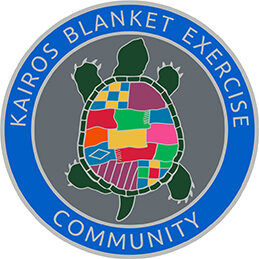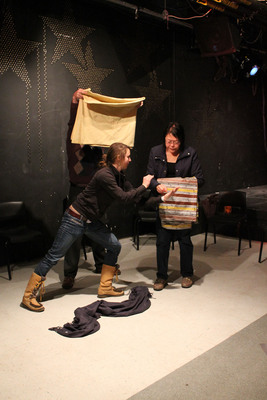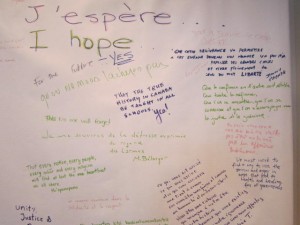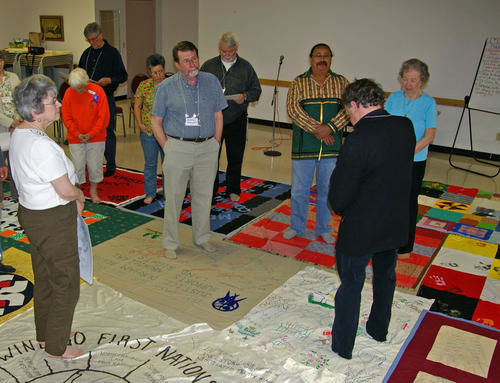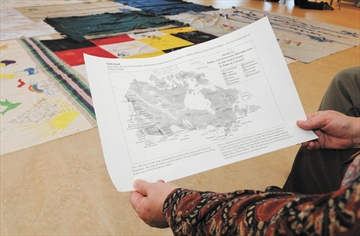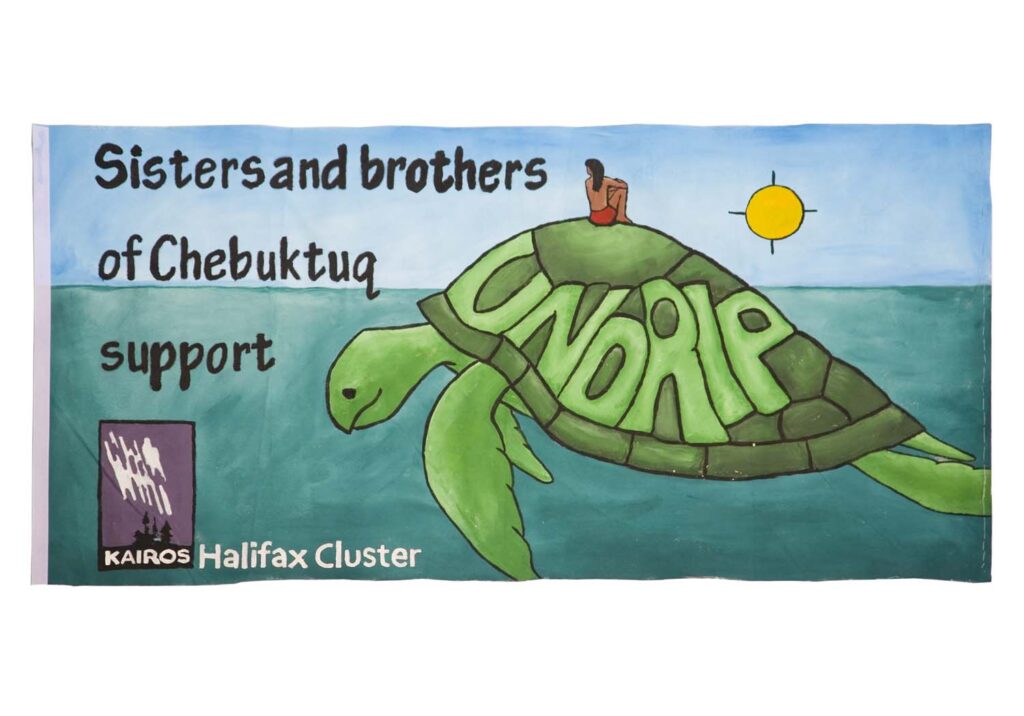By Elyse Brazel and Jesse Root
On Wednesday afternoon at volunteer training we were told that the theme for this gathering was wisdom, one of the 7 grandfather teachings. Throughout the session our coordinator, Viola, who was responsible for giving us a brief introduction to the history of the TRC, used the phrase “share their truths” in reference to the many ways in which people (survivors, clergy, staff) who attended and worked at residential schools had the opportunity to share their testimony throughout the event. What really got us thinking though, was the concept of having multiple truths, not only one. Truth was used in the plural with a purpose: to highlight the contributions of each individual’s story to create understanding of the diverse experiences of people around residential schools. We’re not going to try through this reflection to say who has the truth, or even if “the truth” as a concept exists. However, we think that being willing to consider that there is more than one way of understanding things is a helpful challenge in the process of decolonization. Colonization was a process of occupying Indigenous lands over a period of a few hundred years. Colonialism, on the other hand, is a persistent ideology that occupies hearts and minds and that serves to legitimize the domination of one group over another. Decolonization then will be a process that will take time. It will begin when we choose to listen to other peoples’ stories and let them transform us; change the way we think and act and be in relationship with each other. Acknowledging the wisdom in Indigenous knowledge resists the colonial notion of one single truth. Sharing wisdom is important to reconciliation, or the process of building good relationships, because it resists shallow and empty narratives of one history to include the diversity of peoples needed to create an atmosphere of mutual respect and self-determination. This to us is exactly what the TRC is meant to accomplish.KAIROS and Otesha Youth Bike Tour Builds Bridges of Understanding
Originally published on Aug. 8, 2013 /CNW/ The KAIROS and Otesha Nation to Nation Bike Tour is on a roll through southeastern Ontario building bridges of understanding and respect between communities…
KAIROS at the Quebec National Event of the TRC
KAIROS was honoured to be part of the Quebec national event of the Truth and Reconciliation Commisison in Montreal this April, and to welcome our Filipina and Indigenous partner Vernie…
KAIROS looks at shared, troubled history
Originally published in The Intelligencer on May 14, 2012, by Ken Palmer. Submitted photo Participants in the recent KAIROS-led session to better understand the plight of aboriginal people in North…
Blanket exercise plums the depth of injustice to aboriginals
This historical narrative often eludes well-meaning but sometimes uninformed “white” Christians today. Originally published in Canadian Mennonite North Battleford, Sask. on April 7, 2011 by Dick Benner. Hilda Epp, holds…
Indigenous people’s viewpoint expressed in blanket exercise
Originally published in the Burlington Post on October 21, 2010 by Nikki Wesley. A BLANKET STATEMENT: Last weekend’s blanket exercise at Tansley United Church consisted of blankets being arranged on…
Reflections on the Blanket Train
Sara Stratton Trinity St. Paul’s and Bloor Street United Churches For the last 18 months or so, the biggest part of my job with the Canadian Ecumenical Jubilee Initiative has…
